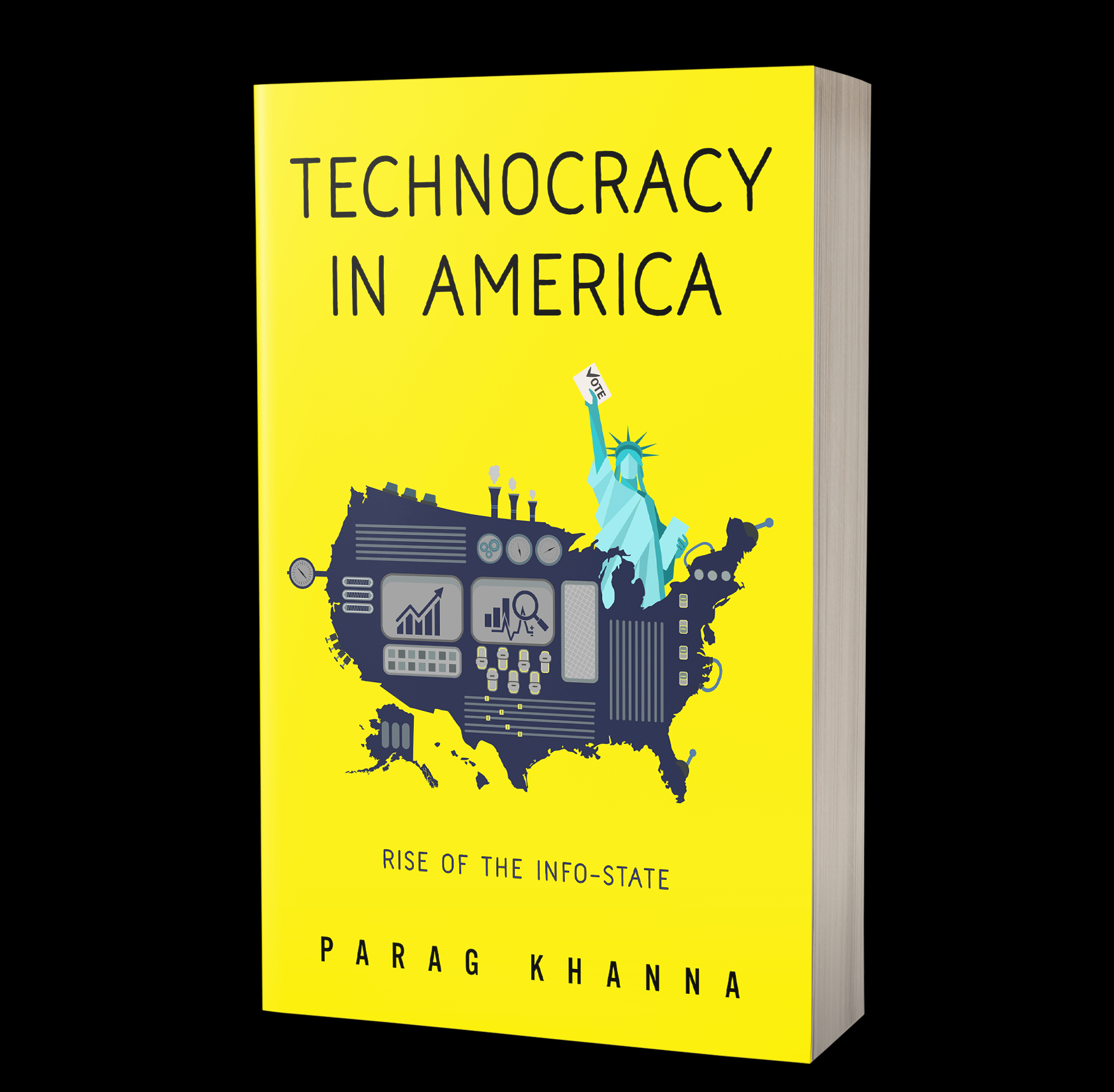Midwest Book Review of Technocracy in America
Midwest Book Review |

Technocracy in America: Rise of the Info-State presents a common contention: that American democracy is broken. But, unlike most competing books, global scholar Parag Khanna looks beyond American shores for solutions to fixing it in an unexpected move that allows for some unusual perspectives.
There are more 'technocratic' democracies in the world than the U.S., and their processes and successes hold many insights into America's political and social woes. Khanna's decades of living in other countries and studying their political arrangements lead to a book that advocates not a return to the past, but a forward-thinking vision where leaders would jointly manage the executive branch and where governors could unite in an entity that would enjoy more immediate powers and results than our current Congress.
The author's close-up observations of how the successful Singaporean and Swiss systems work forms the foundation not of a set of ideals and dreams, but for the basics of a working democratic process that has already been tested and fine-tuned, abroad. What factors connect these very different systems? "...what matters most is that Switzerland and Singapore are both verifiably democratic and rigorously technocratic at the same time. They both have a high percentage of foreign-born populations, national military and civil service, strong linkages between education and industry, diversified economies, and massive state investment in R&D and innovation."
Other nations who can't afford to experiment with political processes have already identified their strategic niches and have put innovations into place that apply their inherent niche assets in new ways on the global arena.
Technocracy in America may sound radical in some of its concepts, but its appearance represents perfect timing for America's new government, which stands poised on the brink of revolutionary changes. Should they go in the direction of this book, many might come to believe that democratic processes could be preserved and enhanced, bringing the nation up to speed in a technocratic environment which other democratic nations of the world are already successfully navigating.
Political and social science students, as well as concerned general readers, will find Technocracy in America satisfyingly specific in its examples and democratic in its focus, offering a different approach to change that acknowledges and enhances past successes while looking forward to a future that embraces technology and democracy in a different manner.